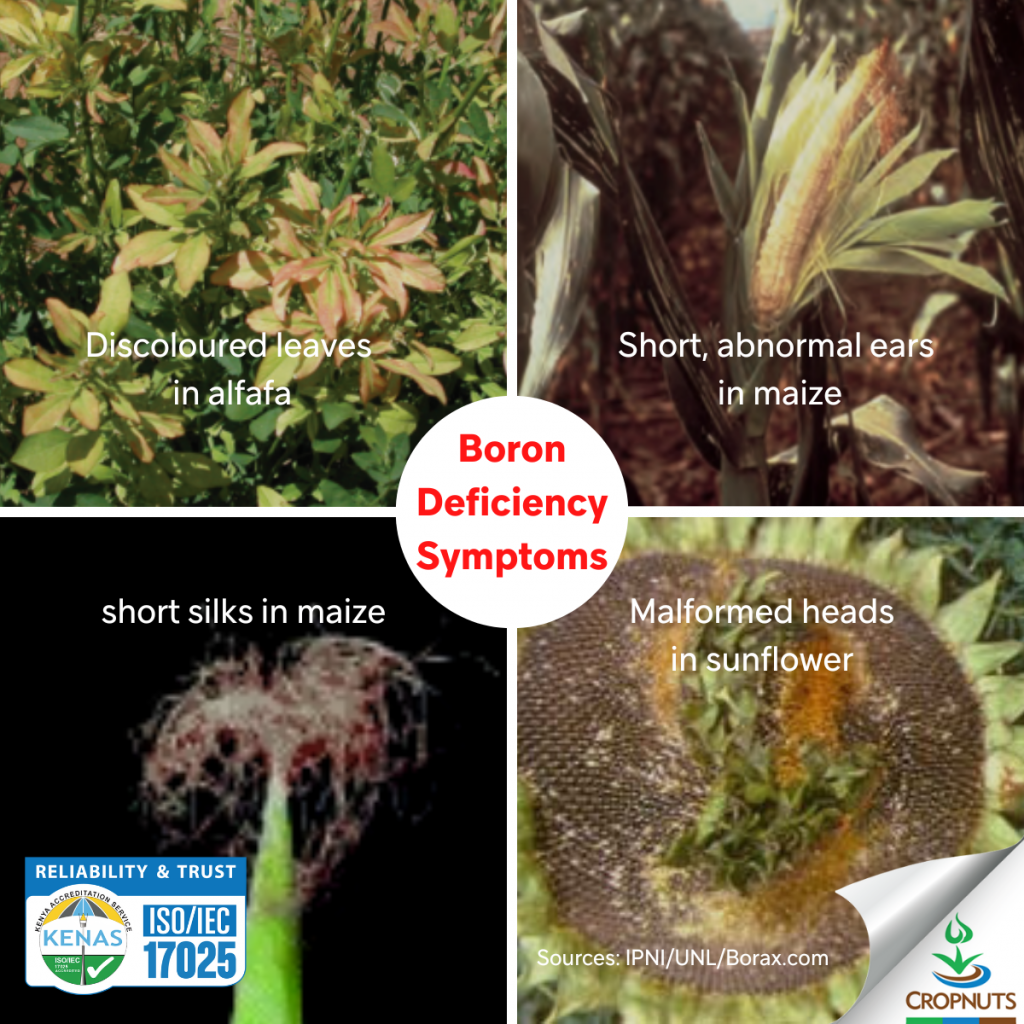
Boron (B) is an essential micronutrient that plays a critical role in plant growth and development. Despite being required in small quantities, boron significantly impacts crop yield and quality. Let’s explore the importance of boron in plant nutrition and how to manage it effectively for optimal crop production:
Boron is vital for cell wall formation and stability, which directly affects plant structure and integrity. It also plays a key role in cell division, seed and fruit development, pollen germination, and the transport of sugars and other nutrients within the plant. Adequate boron levels ensure healthy plant growth and optimal reproductive processes.
Boron deficiency can manifest in several ways, including stunted growth, brittle and thickened stems, poor root development, and deformed or discolored leaves. In fruit and seed crops, boron deficiency can lead to reduced fruit set, lower seed viability, and poor fruit quality. Identifying these symptoms early and addressing boron deficiencies is crucial for maintaining crop health and yield.

Boron availability in soils is influenced by several factors, including soil pH, organic matter content, and soil texture. Boron is most available in soils with a pH range of 5.0 to 7.0. Sandy soils with low organic matter content are more prone to boron leaching and deficiency, while soils with high clay content may have boron availability issues due to fixation.
Regular soil testing is essential to monitor boron levels and address deficiencies promptly. Boron fertilizers, such as borax or boric acid, can be applied to correct deficiencies. However, it is crucial to apply boron judiciously, as excessive boron can be toxic to plants. Foliar sprays can also be an effective method for providing boron to crops with immediate needs.
To optimize boron availability and uptake, adopt soil management practices that enhance soil health and organic matter content. Incorporating organic amendments, practising crop rotation, and maintaining proper soil pH can help improve boron availability and overall soil fertility.
In conclusion, understanding and managing boron nutrition is essential for healthy crops and high yields. By regularly monitoring soil boron levels and implementing best practices, farmers and agronomists can ensure that their crops receive the boron they need for optimal growth and productivity. For personalized guidance on managing boron and other micronutrients, feel free to contact our experts at support@cropnuts.com.
Grow more with less
#savesoil #soilhealth #soilscience #boron #plantnutrition
Order our services and get to know how to improve your soil for better yeilds.